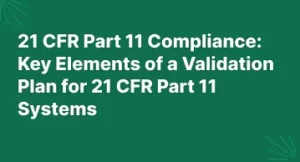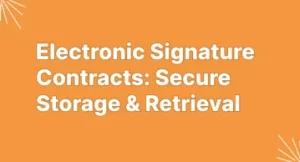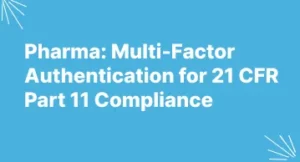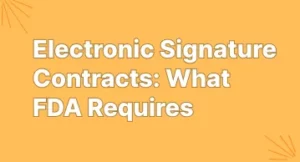Wet Signature vs Electronic Signature What Are Wet Signatures & When Are They Required
What are wet signatures?
A wet signature is a sign made with a pen or other writing device on a hard copy in business and law. A wet signature is signing a document with a physical signature made in ink. Electronic signatures (e-signatures) are becoming an accepted form of hard copy signatures, but not all governments and businesses accept e-signatures on contracts or any other documents. Many signers (also known as signatories) prefer to use handwritten signatures to put on documents.
When should you still sign a document with a wet signature?
When important documents are legally binding, it is sometimes necessary to collect a wet signature. This type of signature is still needed for legal documents; including wills, estate settlements, adoptions, divorces, and insurance benefits.
Electronic signatures are legally valid when the signer consents to this technology. If the document recipient insists on executing an agreement or contract on paper, you should allow a wet signature.
When is a wet signature required?
For centuries, the traditional wet ink signature was the accepted way to ratify a contract between two or more parties legally. The contract’s validity depends on the jurisdiction in which the parties are based on the content and purpose of the contract, and whether eSignatures or wet-ink signatures are used. Generally, eSignatures have been deemed valid and enforceable worldwide, yet certain cases may require wet-ink signatures.
-
In English law:
To ensure compliance with UK tax regulations and the Land Registry, it is essential to submit the necessary documents.(source)
-
In US law:
Convincingly secure your future with promissory notes, notarized documents, mortgages, deeds of trust, and other collateral documents.(source)
-
In Canadian law:
Convincingly secure your future with promissory notes, personal guarantees, notarized mortgage documents, and registrations with the Bank of Canada.(source)
-
In German law:
A notarization is required for any transfer or pledge of shares in a GmbH, real estate transfer, or mortgage/land charge over real estate.(source)
In various jurisdictions, wet ink signatures, notarized signatures, and page initialing may be subject to formal or informal requirements. Although physical signatures are not a legal requirement on contracts or other agreements, businesses and organizations may still choose to require them as they deem appropriate. This can be beneficial, providing added confidence and security. Therefore, it is worth considering when agreeing.
Is a wet signature more secure than an electronic signature?
Typically, establishing validity and attribution of wet signatures requires an expensive and time-consuming comparison of copies of signatures and testimony from handwriting experts or witnesses present at the time of signing. This process is less reliable due to its reliance on human judgment.
MSB Docs eSignature offers increased security compared to traditional wet signatures, making it more difficult to forge. The technology in place records the IP address of the signer, along with the contract’s date and time, allowing for essential data to be provided in case of any dispute concerning the validity of the signature.
Audit trails facilitate authenticity and conflict resolution in state and federal courts by eliminating the possibility of human error and automating the data capture process.
What are the drawbacks of wet signatures?
eSignature has become increasingly popular in the contract process for individuals and businesses due to its clear advantages. Rather than relying on the physical transfer of documents, eSignature allows for a much quicker process. Furthermore, there is less risk involved with using eSignature as electronic documents are more securely stored than physical papers. Lastly, with electronic documents, there is no need to scan and save a physical impression; the document can be stored in the cloud.
A wet signature process’s slow and cumbersome nature becomes increasingly noticeable as the number of contracts increase. At MSB Docs, we work with many companies managing hundreds and even thousands of contracts per month. Our customers, for example, had the CEO spending half a day each week, physically signing hard-copy contracts manually before automation with MSB Docs streamlined their contract workflow.
It is an inefficient use of time for those in a business’s senior positions – such as a CEO, CFO, or other authorized signatories – to use the traditional, wet signature process for signing contracts. MSB Docs enterprise electronic signature allows you to quickly and securely sign multiple agreements with a single click without needing wet signatures.
Why should you choose an electronic signature over a wet signature?
Replacing paper contracts and documents with cloud-based solutions is an increasingly preferred approach for businesses to handle their contracts. While eSignature is a critical component of this process, it is only one component of the overall contract journey. eSignature is an advanced and reliable digital method of completing contracts.
Despite some elements of this agreement process not requiring a physical signature, the whole procedure is still tedious and is likely to become more tedious over time; this is primarily due to its use of documents (such as Word and PDFs) instead of data.
The contract lifecycle is slow and time-consuming; crucial data can be lost at every step, and files can’t easily integrate with other essential systems (like CRM, ATS, and so on). The familiar challenges of dealing with vast amounts of contracts – from version control, misplaced contracts, and unsigned contracts to inconsistent contracts and the tedious search for the latest version of a particular template – are enough to give anyone a headache. But it doesn’t have to be this way. With the right approach, businesses can manage contracts quickly and efficiently without requiring lawyers or other costly solutions.





